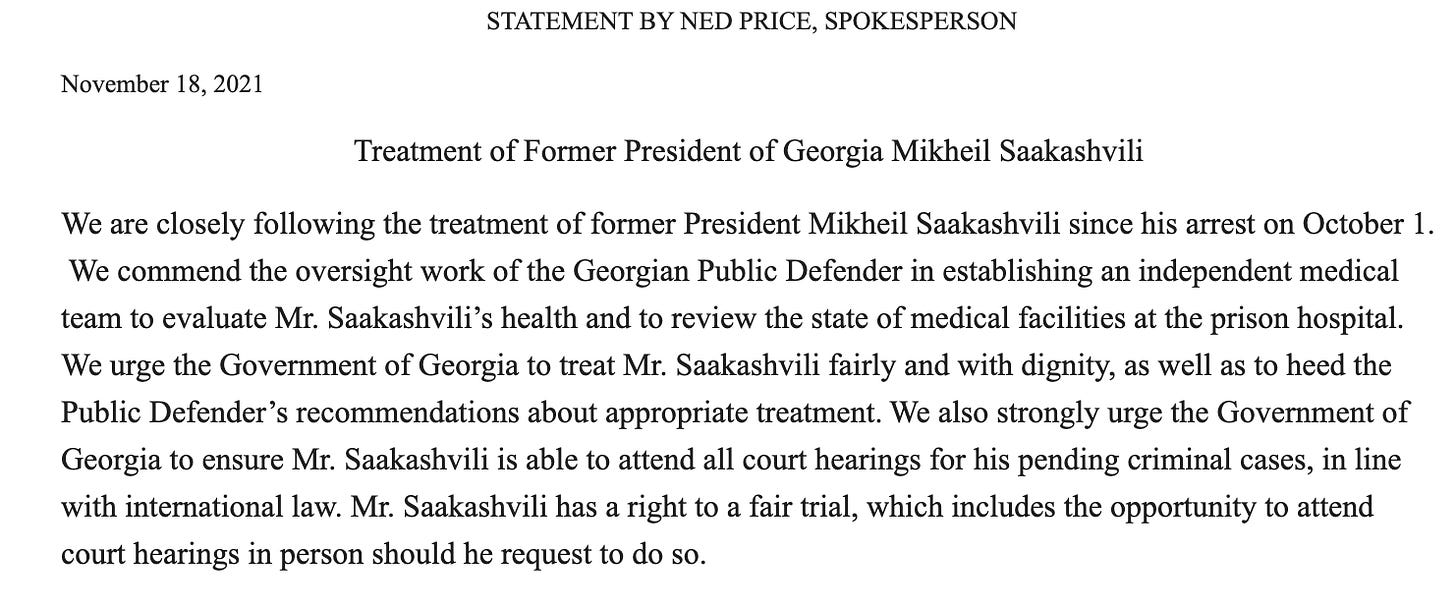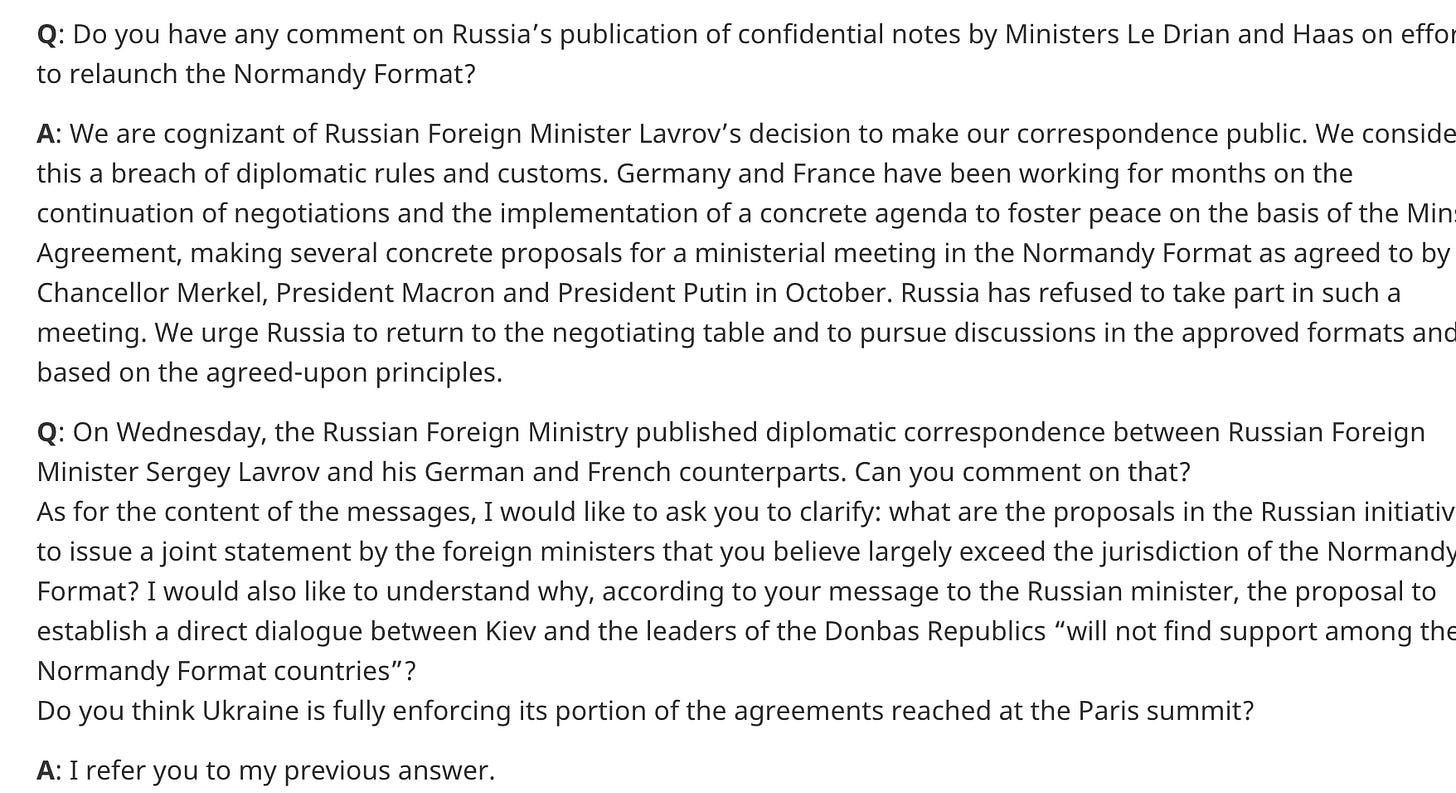Send us news tips! If there’s an article you think Cristina should include, send it to c.maza@protonmail.com, or just reply to this newsletter.
• Estonia summoned 1,700 reserve soldiers and announced snap military exercises that will include installing razor wire along its border with Russia, Reuters reports. Ukraine’s Interior Minister likewise proposed building a fence on its border with Belarus and Russia.
• Lawmakers in Austria voted to strip former Chancellor Sebastian Kurz of immunity, meaning that he can now be prosecuted for corruption allegations, Politico Europe reports.
• Polish border guards used tear gas and water cannon against migrants trying to cross the border. Warsaw continues to reject the EU’s requests that Frontex and NGOs be given access to the border, Reuters reports.
• The European Court of Justice ruled that a Hungarian law that criminalizes helping asylum seekers violates EU law, Politico Europe reports.
• The same court determined that Polish rules allowing the country's Justice Minister to assign and remove judges from higher criminal courts violate EU law. Read the press release.
• Armenia and Azerbaijan accused each other of opening fire near Nagorno-Karabakh, Agence France-Presse reports.
• A number of Armenian troops were killed during a clash between Armenian and Azerbaijani forces at the border, the BBC reports.
• Ukraine imposed sanctions on 28 employees of Russia’s special services, Reuters reports.
• Ukraine’s Foreign Minister Dmytro Kuleba accused Russia of failing to engage in four-way peace talks on the war in eastern Ukraine, and trying to undermine the peace process by publishing confidential diplomatic correspondence, Reuters reports.
• Greece is putting two dozen aid workers on trial for espionage because of their role in assisting migrants who arrived in Greece between 2016 and 2018, the New York Times reports.
• The foreign ministers of EU member states agreed to impose sanctions on the Russian mercenary company Wagner Group, the Wall Street Journal reports.
• The EU agreed to impose new sanctions against the authoritarian government in Belarus in response to the border crisis on the EU border, the Washington Post reports. New sanctions were issued specifically against “individuals and entities organizing or contributing to activities by the Lukashenko regime that facilitate illegal crossing of the EU’s external borders.”
• Hackers thought to be behind attacks on governmental agencies in Europe and the United States have been linked to the Belarusian government, according to a new report by the cybersecurity company Mandiant.
• The EU is considering creating a joint military force of up to 5,000 troops by 2025, Reuters reports. It would be able to intervene in a range of crises without relying on the US.
• The Biden Administration is considering sending some of the Afghan evacuees at a U.S. military base in Kosovo back to Afghanistan if they cannot clear the vetting process to go to the US, CNN reports.
•Hindu extremists in India attacked the home of a Muslim former foreign minister who recently published a book in which he compared Hindu nationalists under Prime Minister Narendra Modi to terrorist groups such as the Islamic State. Al Jazeera has the report.
• Police in India’s Maharashtra state killed at least 26 Maoist militants in an ambush, Reuters reports.
• Russia started to deliver the first S-400 missile defense system to India, Al Jazeera reports.
• Turkish authorities arrested a man considered a suspect in the July assassination of Haitian President Jovenel Moïse, the Associated Press reports.
• The Vice Foreign Ministers of Japan and South Korea pulled out of a joint press conference with US Deputy Secretary of State Wendy Sherman following a disagreement over the Takeshima/Dokdo islands, the Guardian reports. The islands are administered by South Korea but claimed by Japan.
• The chair of the Commanders of Israel’s Security—a group of more than 300 former generals and top security officials in Israel—released a letter expressing support for the US reopening a consulate for Palestinians in Jerusalem, arguing that it is in Israel’s national security interest.
• Sudanese security forces killed at least fifteen protestors and wounded many others after firing into crowds demonstrating against the October military coup, the New York Times reports.
• Late Libyan dictator Colonel Muammar Gaddafi’s son announced that he will run for president in Libya’s upcoming election, the New York Times reports. Libyan military commander Khalifa Hifter also filed as a candidate, the Associated Press reports.
• Stockholm’s International Institute for Democracy and Electoral Assistance released its annual report on the state of democracy globally. “The world is becoming more authoritarian,” it found, noting with special alarm “the most worrying examples of backsliding” among the world’s largest countries: Brazil, India, and the United States.
What Cristina’s writing:
• She spoke at length with Congresswoman Marcy Kaptur about her three decades in Congress, and her work on Russia, Ukraine, Belarus, Poland, and other foreign policy issues related to Central and Eastern Europe.
• She and her colleague Brian Dabbs wrote an article about the future of sanctions against the Nord Stream 2 pipeline. A bipartisan House bill would require the Biden administration to sanction Nord Stream 2. Senate Republicans introduced an identical amendment to the National Defense Authorization Act. Now it’s up to Senate Democrats to decide where they stand.
• She spoke with Afghan Special Immigrant Visa recipients who—despite being issued visas—have faced administrative hurdles in Pakistan while trying to collect their visa foils. Now they’re running out of money and time on their Pakistani visas. All of them have small children with them and put themselves at tremendous risk to travel to Pakistan.
• She spoke to Stefan Vladisavljev, who studies Chinese influence in the Western Balkans, about Vietnamese workers exploited and abused by a Chinese company in Serbia and what this case tells us about Chinese influence in the region. Read the interview here.
What the Chancelleries say
From the State Department
From the French Foreign Ministry
From German Foreign Minister Heiko Mass
From the Turkish Foreign Ministry
Read more by Cristina Maza here.














